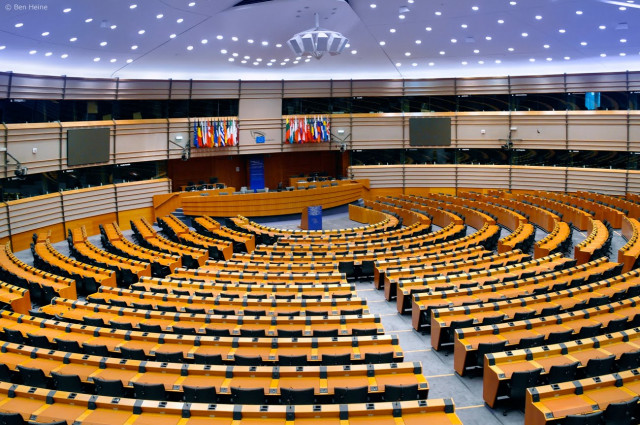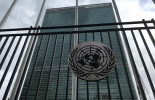 Ось, що ваш кіт справді думає про вас: ви будете здивовані
Ось, що ваш кіт справді думає про вас: ви будете здивовані
 У Лондоні сказали, чи має Україна право бити британською зброєю по території РФ
У Лондоні сказали, чи має Україна право бити британською зброєю по території РФ
 "Чоловіки 30+, реалізовані": Анна Трінчер розповіла про побачення після розлучення
"Чоловіки 30+, реалізовані": Анна Трінчер розповіла про побачення після розлучення
 Влада двох пострадянських країн рекомендувала громадянам відмовитися від візитів до РФ
Влада двох пострадянських країн рекомендувала громадянам відмовитися від візитів до РФ
 РФ замінює західні компоненти в ракетах на власні: аналітики вказали на важливий нюанс
РФ замінює західні компоненти в ракетах на власні: аналітики вказали на важливий нюанс
 Таліби хочуть заманити більше туристів до Афганістану
Таліби хочуть заманити більше туристів до Афганістану
 ISW: Путін "засвітився" із соратником Пригожина, щоб покарати Шойгу за провали в Україні
ISW: Путін "засвітився" із соратником Пригожина, щоб покарати Шойгу за провали в Україні
 Після чуток про побиття: Камалія несподівано поїхала з України
Після чуток про побиття: Камалія несподівано поїхала з України
 Україна робить ставку на дрони великої дальності, підвищуючи вартість війни для Росії, - WSJ
Україна робить ставку на дрони великої дальності, підвищуючи вартість війни для Росії, - WSJ
 В Польщі пропонують створити "важку бригаду" ЄС: що це означає
В Польщі пропонують створити "важку бригаду" ЄС: що це означає
 Анна Трінчер розповіла, як ставилася до ідей Волошина: "В мене не було права голосу"
Анна Трінчер розповіла, як ставилася до ідей Волошина: "В мене не було права голосу"
 Шоколадне печиво за 30 хвилин: Джеймі Олівер поділився рецептом
Шоколадне печиво за 30 хвилин: Джеймі Олівер поділився рецептом
 США звинуватили Росію в застосуванні забороненої хімзброї у війні в Україні, - Reuters
США звинуватили Росію в застосуванні забороненої хімзброї у війні в Україні, - Reuters
 Опитування показало, скільки грошей отримують українські біженці у Європі
Опитування показало, скільки грошей отримують українські біженці у Європі
 Росія впаде нижче за Туркменістан за рівнем життя вже через три роки, - МВФ
Росія впаде нижче за Туркменістан за рівнем життя вже через три роки, - МВФ
 Температура в Україні впаде до +12°: синоптик розказала, коли похолоднішає
Температура в Україні впаде до +12°: синоптик розказала, коли похолоднішає
 WhatsApp додав дві корисні функції, які спростять життя користувачам
WhatsApp додав дві корисні функції, які спростять життя користувачам
 Росія посилила штурми під Авдіївкою: Генштаб розкрив ситуацію на фронті
Росія посилила штурми під Авдіївкою: Генштаб розкрив ситуацію на фронті
 "Чоловіки 30+, реалізовані": Анна Трінчер розповіла про побачення після розлучення
"Чоловіки 30+, реалізовані": Анна Трінчер розповіла про побачення після розлучення
 Детонатор спрацював від сигналу GPS: росЗМІ розкрили, як і чим підірвали Кримський міст
Детонатор спрацював від сигналу GPS: росЗМІ розкрили, як і чим підірвали Кримський міст
 "Євробачення-2024": Україна знову піднялася в букмекерському списку потенційних переможців
"Євробачення-2024": Україна знову піднялася в букмекерському списку потенційних переможців
 Росія готує наступ на Харківську та Сумську області, - ГУР
Росія готує наступ на Харківську та Сумську області, - ГУР
 РФ замінює західні компоненти в ракетах на власні: аналітики вказали на важливий нюанс
РФ замінює західні компоненти в ракетах на власні: аналітики вказали на важливий нюанс
 ЗСУ "мінуснули" понад 1200 окупантів: втрати РФ наближаються до критичної лінії
ЗСУ "мінуснули" понад 1200 окупантів: втрати РФ наближаються до критичної лінії
 Годжес жорстко висловився про повернення з ЄС деяких українців: хто має бути в ЗСУ
Годжес жорстко висловився про повернення з ЄС деяких українців: хто має бути в ЗСУ
Since the migration crisis of 2015-16, irregular migration into the EU has been relentlessly used by right-wing populists across Europe to attack not only the political establishment but in some cases the foundations of our constitutional democracies, including political pluralism, freedom of the media and equality before the law.
In order to get on top of the irregular migration problem, the EU needs money for policies to decrease illegal border crossings and increase deportations of those who are staying in the bloc illegally. To this end, the EU needs financial flexibility to support non-EU governments in preventing undocumented departures and taking back their own nationals.
Although the European Commission has proposed a long-term budget to suit these policy goals, recent votes in the European Parliament would result in tying the EU’s hands in this regard. Guided by the misplaced concern for “a fair distribution of resources” inside the EU, the Parliament’s position - if put into practice - would result in addressing the symptoms, not the cause of the irregular migration problem, and thus continuing to fuel the authoritarian onslaught on our democracies.
Since 2015, the EU has adopted a range of policies to stem migration and improve border protection; for example, through a strengthening of Frontex (the EU’s border control agency), concluding the EU-Turkey agreement to assist Syrian refugees in Turkey, and supporting for Libya to undertake its own search and rescue operations in the Mediterranean.
The need for public money to manage migration has translated into proposals for the EU’s upcoming long-term budget. Last year, the European Commission proposed a step increase for migration-related funds for the years 2021-27.
The Commission’s proposal for the renewal of the Asylum and Migration Fund also offered flexibility in the way migration-related money is spent on cooperation with non-EU countries. Unfortunately, the plenary of the European Parliament thwarted this intention on 12 March 2019 by imposing artificial caps on this type of activity and directing the bigger part of the Asylum and Migration Fund to internal migration spending.
It is true to say that the Parliament’s decision sets the stage for an animated fight between the Commission, the Parliament and the Council over the EU’s long-term migration budget in the coming months.
Referring to the European Agenda on Migration (a document compiled in 2015), the Commission’s proposal increases the overall budget for external borders management and migration from €13 billion for the years 2014-20 to €34.9 billion as part of the new ‘Multiannual Financial Framework’ 2021-2027. According to the Commission, this 260% higher increase is meant to boost flexibility in responding to migratory challenges.
The Commission sent the proposal for a regulation establishing a new Asylum and Migration Fund to the European Parliament and the Council in June 2018. As with the current version of the Fund, the new Fund would support member state policies in the areas of asylum, legal migration and integration, countering irregular migration and facilitating deportations.
The idea behind the Commission’s proposal is to allow greater flexibility on countering irregular migration and ensuring effectiveness of returns and re-admission in third countries. These are laudable goals in view of the persistent problems with irregular migration that include, not only illegal border crossings but, even more importantly, overstaying visas. Cooperation with third countries is an essential element of the EU’s migration policy, and one without which the dream of well-managed migration will remain a chimera.
Unfortunately, the European Parliament took a different view from that of the Commission. The Parliament’s amendments to the Commission proposal were first adopted in the Civil Liberties, Justice and Home Affairs Committee in February and then approved in the plenary in March. They did retain the overall amount of money allocated to the Asylum and Migration Fund. But at the insistence of centre-left and liberal MEPs, and against the preferences of the centre-right, the Fund’s capacity to counter irregular migration and speed up deportations became limited. As a result of the committee amendments, a limit of 5% was imposed on financing cooperation with third countries. This cap concerns both the total amount allocated to the member state programmes and the Commission’s €4.2 million ‘thematic facility.’
This completely subverts the Commission intention to introduce greater flexibility in responding to irregular migration challenges. Under the current rules, the member states have had to spend more than 40% of the money on migrant returns and support to non-EU countries in tackling irregular migration. The agreed position of the Parliament greatly reduces the required flexibility, even when compared to current state of affairs.
In the parliamentary debates, centre-right deputies supported the Commission’s intentions on the flexibility of spending, while the left-wing deputies, including the parliamentary rapporteur for the dossier, threw their weight behind ”measures that ensure a fair distribution of resources among the objectives and a high degree of transparency regarding Union expenditure.”
The drastic change to the Commission proposal reveals an ideological difference between the centre-right and centre-left in the European Parliament. The left obviously continues believing that irregular migration is not a major problem for the EU, whilst the right correctly sees this phenomenon as one that is detrimental to the stability of our democracies.
It is true to say that the Parliament’s decision sets the stage for an animated fight between the Commission, the Parliament and the Council over the EU’s long-term migration budget in the coming months.






























































































































